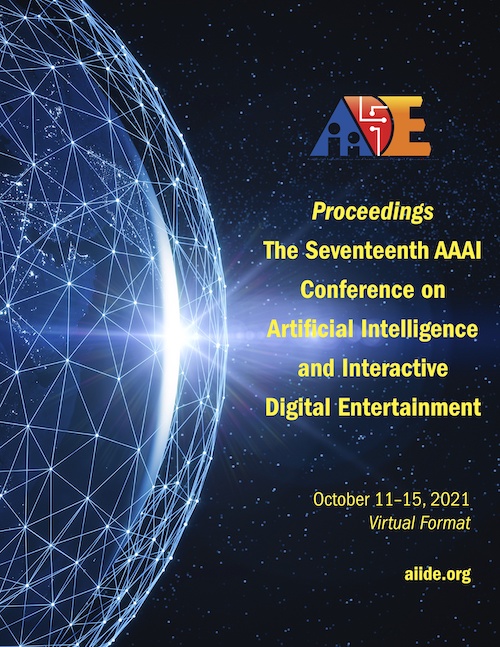Crosston Tavern: Modulating Autonomous Characters Behaviour through Player-NPC Conversation
DOI:
https://doi.org/10.1609/aiide.v17i1.18906Keywords:
Npc, Npc-player Interaction, Player Interaction, Ai, Game Prototype, Simulation, Simulated Action, Knowledgebase, Means-end Analysis, Recursive GoalsAbstract
NPCs (Non-Player Characters) are a staple of video games, filling all kinds of supporting roles. This work seeks to flip that paradigm and place the player in the role of support for the goals of a small collection of NPCs enabling a new kind of AI-driven gameplay. Built on a world simulation where NPCs can take action according to their goals and knowledge of the world state and a conversation space in which the NPC is able to report their actions and exchange information with the player, this prototype AI-based game design explores a new player-NPC interaction in which player conversational actions indirectly influence the NPC simulation. In this paper we discuss the architecture, provide a design postmortem, and report the results of play testing.Downloads
Published
2021-10-04
How to Cite
Oliver, E., & Mateas, M. (2021). Crosston Tavern: Modulating Autonomous Characters Behaviour through Player-NPC Conversation. Proceedings of the AAAI Conference on Artificial Intelligence and Interactive Digital Entertainment, 17(1), 179-186. https://doi.org/10.1609/aiide.v17i1.18906

